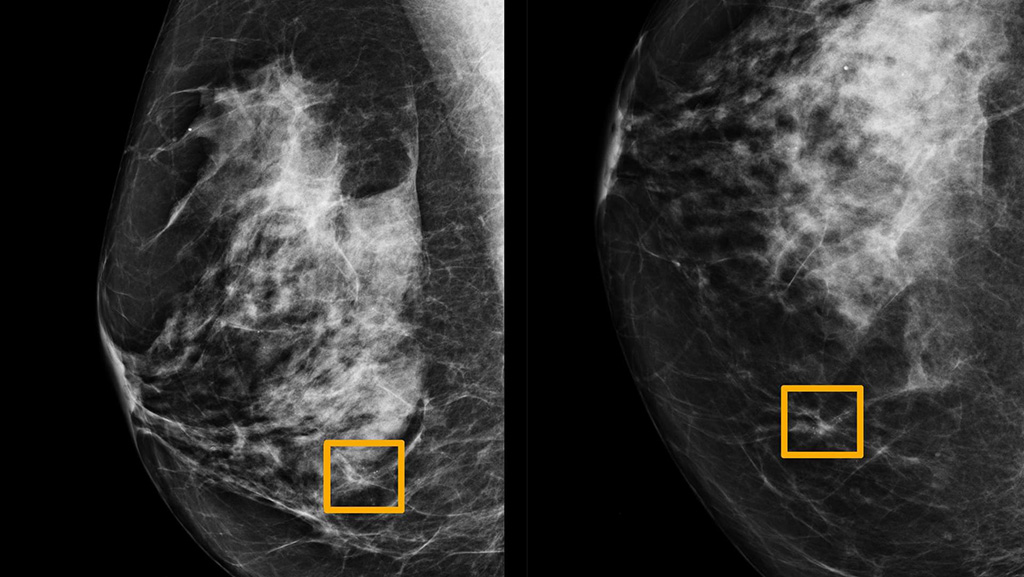AI System Improves Mammogram Cancer Detection Accuracy
By MedImaging International staff writers
Posted on 13 Jan 2020
An artificial intelligence (AI) program is better than experienced radiologists at detecting breast cancer in mammograms, according to a new study.Posted on 13 Jan 2020
Developed by Google Health (Palo Alto, CA, USA), Imperial College London (Imperial; United Kingdom), DeepMind (London, United Kingdom), and other institutions, the AI algorithm was first trained to spot breast cancers in mammograms from more than 76,000 women in the UK and about 15,000 women in the US. It was then asked to assess 25,856 new mammograms from women in the United Kingdom and 3,097 from women in the United States, who either had biopsy-confirmed breast cancer or no signs of cancer during follow up at least one year later.

Image: AI detects cancer in routine mammograms where six radiologists failed to (Photo courtesy of Northwestern University)
The results showed that the AI system could detect cancer with a similar degree of accuracy to the radiologists, but it also reduced the number of errors, with false positives reduced by 5.7% in the US group and by 1.2% in the UK group, and false negatives reduced by 9.4% in the US group, and by 2.7% in the UK group. In an independent study of six radiologists, the AI system outperformed all of the human readers by an absolute margin of 11.5%. In a simulation in which the AI system used the double-reading process used in the UK, it maintained non-inferior performance, reducing the workload of the second reader by 88%. The study was published on January 1, 2020, in Nature.
“The findings suggest that AI could improve the accuracy of screening in the US and maintain a similar level of quality in the UK, with the technology being used to assist or replace a second radiologist,” said study co-author Dominic King, MD, PhD, of Google Health London. “Further testing, clinical validation, and regulatory approvals are required before this could start making a difference for patients, but we're committed to working with our partners towards this goal.”
DeepMind is a British artificial intelligence company founded in September 2010 which created a neural network that learns how to play video games in a fashion similar to that of humans, as well as a neural network that may be able to access an external memory like a conventional Turing machine, resulting in a computer that mimics the short-term memory of the human brain; it was acquired by Google in 2014.
Related Links:
Google Health
Imperial College London
DeepMind














